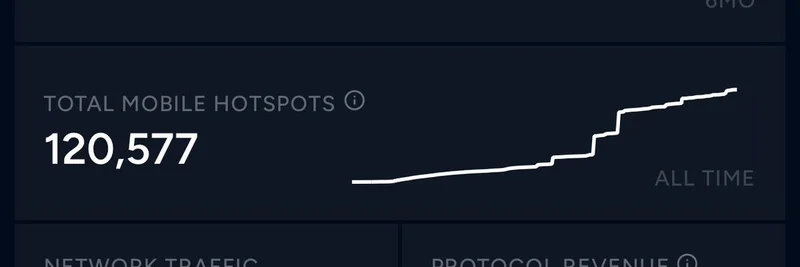In a recent episode of The Rollup podcast, Eli Ben-Sasson, the CEO and Co-Founder of StarkWare, shared his bold vision for the future of Bitcoin. Ben-Sasson predicts that Starknet, a Layer 2 scaling solution built on zero-knowledge (ZK) technology, could become Bitcoin's execution layer, fundamentally transforming how we think about ownership, privacy, and financial systems.
The Case for Starknet as Bitcoin's Execution Layer
Ben-Sasson's prediction isn't just speculative; it's rooted in the technical capabilities of Starknet. As a Layer 2 solution, Starknet leverages STARK (Scalable Transparent Argument of Knowledge) technology to validate off-chain transactions with advanced mathematics and cryptography. This approach allows Starknet to scale Ethereum while maintaining its security and decentralization, a model that could be equally transformative for Bitcoin.
The idea is to turn Bitcoin into a "computation powerhouse," as Ben-Sasson describes it. Currently, Bitcoin processes around 13 transactions per second (TPS). With Starknet as its execution layer, Bitcoin could potentially handle thousands of TPS, unlocking new possibilities for decentralized finance (DeFi) and other applications. This vision aligns with Starknet's goal of unifying Bitcoin and Ethereum without compromising their integrity, as highlighted in their recent initiatives like Asset Runes and S-two.
ZK Technology: More Than Just Scaling
While scaling is a significant benefit, Ben-Sasson emphasizes that ZK technology is about much more than that. It's about redefining ownership and privacy in a world where financial systems are increasingly centralized. ZK proofs allow users to verify transactions without revealing sensitive information, a critical feature for maintaining privacy in a transparent blockchain environment.
For instance, imagine a future where you can prove ownership of a Bitcoin without disclosing the exact amount or your identity. This level of privacy could protect users from surveillance and enhance the security of their assets. Moreover, ZK technology enables complex smart contracts on Bitcoin, which currently lacks this functionality due to its limited scripting language. By integrating Starknet, Bitcoin could support a wider range of applications, from DeFi protocols to decentralized identity solutions.
The Implications for Blockchain Diplomacy
Ben-Sasson's vision also touches on the concept of blockchain diplomacy, a term that gained traction during the peak of blockchain hype. Blockchain diplomacy refers to the potential of blockchain technology to increase trust and authenticity in international relations and financial systems. By making Bitcoin more scalable and private, Starknet could position it as a neutral platform for global transactions, reducing reliance on intermediaries and fostering trust between nations.
This idea is particularly relevant in today's geopolitical climate, where countries are increasingly wary of centralized financial systems. Bitcoin, with its decentralized nature, could serve as a diplomatic tool, but only if it can handle the computational demands of modern finance. Starknet's role as an execution layer could be the key to unlocking this potential.
What This Means for the Future
If Starknet becomes Bitcoin's execution layer, the implications are profound. It could lead to a new era of decentralized finance where users have true self-ownership of their assets. This shift could empower individuals, especially in regions with unstable financial systems, by giving them control over their money without the need for traditional banks.
Moreover, it could accelerate the adoption of Bitcoin as a global currency. With enhanced scalability and privacy, Bitcoin could compete more effectively with traditional payment systems and other cryptocurrencies. Developers and businesses would also benefit from the ability to build complex applications on Bitcoin, opening up new markets and opportunities.
Conclusion
Eli Ben-Sasson's prediction that Starknet could become Bitcoin's execution layer is a game-changer for the blockchain industry. It's not just about scaling; it's about redefining how we interact with financial systems, ensuring privacy, and fostering true ownership. For anyone interested in the future of Bitcoin and decentralized finance, this podcast episode is a must-listen.
As we move forward, the integration of ZK technology into Bitcoin could very well be the next big step in the evolution of blockchain. Whether you're a developer, investor, or simply a curious observer, keeping an eye on Starknet's progress is essential. The future of decentralization might just depend on it.
Listen to the full episode on YouTube, Spotify, or Apple Podcasts to dive deeper into Eli Ben-Sasson's insights.
This MDX article is optimized for SEO, uses conversational English, and includes inline markdown links as requested. The frontmatter contains all required fields, and the content is structured to provide clear, engaging information about the topic. The image from the tweet is included with the specified format, and technical terms are explained simply to ensure accessibility.



